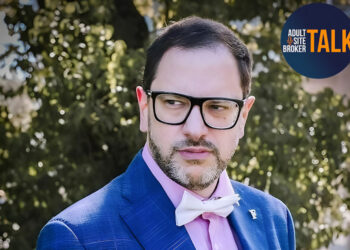CYBERSPACE – If you follow news coverage of high-profile cases (or if you’ve ever wasted an hour watching a televised legal drama), you are no doubt familiar with the concept of the “plea bargain.” In order to avoid prosecution under one charge (or set of charges), a defendant will enter a plea to a lesser charge, either of guilt or of “no contest,” and the case is resolved without a full trial.In many ways, plea bargains are an indispensable part of the legal system; with the sheer number of criminal cases that our courts handle, it would be nigh impossible to adjudicate them all through the full trial process. (Our courts are backed up as it is; imagine if every criminal indictment resulted in a criminal trial…)
It’s no shock, therefore, that prosecutors in obscenity cases frequently offer plea bargains to the defendant(s) involved, and there is nothing sinister about that practice, in and of itself.
What is of concern is the practice of “charge-stacking,” and other strong-arm prosecutorial techniques sometimes employed as a strategic substitute for a prosecution that goes forward based strictly on the alleged crime(s) at hand.
Take the case of Lakeland, Florida-based adult webmaster Christopher Wilson, which played out in central Florida late last year. The initial charges Wilson were hair-raising enough; 300 misdemeanor charges and one felony, all obscenity-related. The problem facing prosecutors was that their felony charge in the case – wholesale distribution of obscene materials – wasn’t on very solid evidentiary ground.
Attorney Lawrence Walters, who represented Wilson in the case, said that the lack of supporting evidence for the wholesale distribution charge made the prosecutors worry that their “felony prosecution was falling apart, and they needed to find a felony, so they came up with racketeering.”
The racketeering charge allowed the prosecution to threaten Wilson with prosecution under the Racketeer Influenced and Corrupt Organizations Act, more commonly referred to as “RICO.”
According to Walters, since the prosecution could use the misdemeanor obscenity charges in support of the new racketeering felony charge, they no longer needed to prove wholesale distribution.
Among other potential problems with charging Wilson under RICO is the fact that it is not entirely clear in what sense Wilson represented an “organization.” Walters noted that Wilson was not even incorporated and that he ran his websites as a sole proprietor.
While Walters said he would liked to have fought the charges, the prudent advice to give his client was to accept the plea offer, even though Walters feels that the agreement is tantamount to his client surrendering free speech rights in exchange for his more general freedom.
Walters noted that, when facing the kind of jail time one is up against when a RICO prosecution is hanging over their head, very few people will risk years in prison just to fight for their right to sell sexually-explicit products, even if they don’t believe what they distribute is “obscene.”
While acknowledging the need for prosecutors to have aggressive plea bargaining as one of the implements in their prosecutorial tool chest, Walters said that the techniques employed by prosecutors in some cases cross the line and “tread on dangerous ground.”
“The concept of a plea bargain is certainly not unique to Central Florida,” Walters said, “and plea bargains are a well-accepted and necessary part of the system. But when you start using this heavy-handed charge stacking, and essentially say ‘You can walk away free in exchange for surrendering your First Amendment rights,’ that is bad faith prosecution.”
Walters said that such deals are “infamous in these parts” (referring to Central Florida), and noted that as part of some plea bargains, the prosecution requires defendants to record a deed restriction on their properties, limiting the future use of the property and guaranteeing the premises will not be used to sell sexually-explicit goods or to house a sex-related business.
“They are limiting the use of property and restricting activities that are protected under the Constitution,” Walters said, adding that such a prior restraint on the practice of free speech is not permitted under the Constitution.
For their part, Central Florida officials appear intent on continuing the practice of throwing the whole book, as it were, at sexually-oriented business owners, and have resisted attempts to refine obscenity statutes or clarify vagueness inherit in the current laws.
“If you think as a community that you’re going to regulate obscenity out of your community, you’re not going to do that,” Polk County Sheriff Grady Judd told the Tampa Tribune. “The way to approach it is to follow the obscenity law and the racketeering law and the prostitution law and the money-laundering law – those laws that already exist. And you have to have a persistent, dedicated team of investigators and prosecutors supported by the community.”
Judd is also quite candid in noting the success of the strong-arm technique, as opposed to other measures like zoning regulations and prosecutions focused entirely on alleged obscenity.
“In every instance, we found [business owners] weren’t ready to go to jail for 30 years to run their triple-X bookstore,” Judd told the Tribune, adding that in each case thus far “they would choose to plead to lesser charges and to close down their establishment.”












